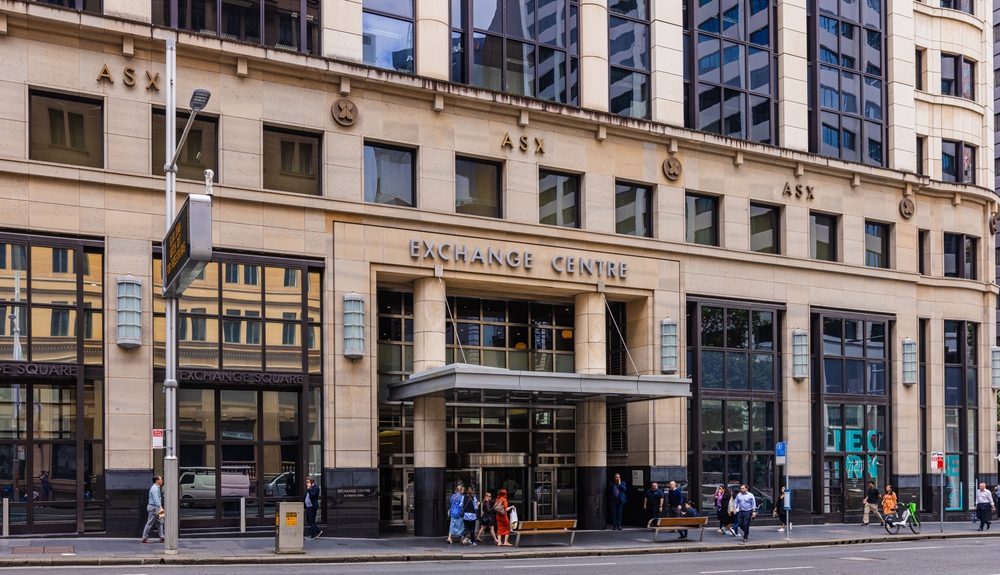ChatGPT Comes Under Investigation by Federal Trade Commission
FTC is examining whether the artificial-intelligence app harmed people by publishing false information
WASHINGTON—The Federal Trade Commission is investigating whether OpenAI’s ChatGPT has harmed people by publishing false information about them, posing a potential legal threat to the popular app that can generate eerily humanlike content using artificial intelligence.
In a civil subpoena to the company made public Thursday, the FTC says its investigation of ChatGPT focuses on whether OpenAI has “engaged in unfair or deceptive practices relating to risks of harm to consumers, including reputational harm.”
One question asks the company to “describe in detail the extent to which you have taken steps to address or mitigate risks that your large language model products could generate statements about real individuals that are false, misleading or disparaging.”
The new FTC investigation under Chair Lina Khan marks a significant escalation of the federal government’s role in policing the emerging technology.
Khan, who appeared before the House Judiciary Committee on Thursday, said the agency is concerned that ChatGPT and other AI-driven apps have no checks on the data they can mine.
“We’ve heard about reports where people’s sensitive information is showing up in response to an inquiry from somebody else,” Khan said. “We’ve heard about libel, defamatory statements, flatly untrue things that are emerging. That’s the type of fraud and deception that we are concerned about.”
For critics of the FTC, the probe represented another venture into uncharted territory for an agency that has suffered recent legal setbacks in its antitrust enforcement efforts.
“When ChatGPT says something wrong about somebody and might have caused damage to their reputation, is that a matter for the FTC’s jurisdiction? I don’t think that’s clear at all,” said Adam Kovacevich, founder of Chamber of Progress, an industry trade group.
Such matters “are more in the realm of speech and it becomes speech regulation, which is beyond their authority,” he said.
OpenAI didn’t respond to requests for comment.
Marc Rotenberg, who heads a group that filed an FTC complaint over ChatGPT in March, said it might be unclear whether the FTC has jurisdiction over defamation. But “misleading advertising is clearly within the FTC’s purview,” said Rotenberg, president of the Center for AI and Digital Policy. “And disinformation relating to commercial practices is already, according to the FTC, an area within its authority.”
Rotenberg’s group filed a complaint with the FTC in March concerning ChatGPT, terming it “biased, deceptive and a risk to privacy and public safety,” and arguing that it satisfies none of the FTC’s guidelines for AI use.
The FTC has broad authority to police unfair and deceptive business practices that can harm consumers, as well as unfair competition, but critics say Khan has sometimes pushed its authority too far—as illustrated by a federal judge’s decision this week to dismiss the FTC’s attempt to block Microsoft’s acquisition of Activision Blizzard.
At the House committee hearing Thursday, Khan came under fire for her agency’s investigation of Twitter’s privacy protections for consumers. Republicans say the probe was driven by progressives angry over Elon Musk’s takeover of Twitter and his loosening of content moderation policies. And Twitter asked a federal court Thursday to terminate a 2022 settlement it agreed to with the FTC over alleged privacy violations, saying it had been subject to a “burdensome and vexatious enforcement investigation.”
Khan responded that the agency was only interested in protecting the privacy of users and that “we are doing everything to make sure Twitter is complying with the order.”
In its civil subpoena to OpenAI, the FTC asked the company detailed questions about its data-security practices. It cited a 2020 incident in which the company disclosed a bug that allowed users to see information about other users’ chats and some payment-related information.
Other topics covered by the FTC subpoena include the company’s marketing efforts, its practices for training AI models, and its handling of users’ personal information. The FTC inquiry was reported earlier by the Washington Post.
The Biden administration has begun examining whether checks need to be placed on artificial-intelligence tools such as ChatGPT. In a first step toward potential regulation, the Commerce Department in April put out a formal public request for comment on what it called accountability measures.
The White House’s Office of Science Technology Policy is also working to develop strategies to address both the benefits of AI, such as the possibility of using it to expand access to government services, as well as harms such as increased hacking capabilities, discriminatory decisions by AI systems, and the potential for AI-generated content to disrupt elections.
Lawmakers in both parties—led by Senate Majority Leader Chuck Schumer (D., N.Y.)—also have made regulating artificial intelligence a priority for the current Congress.
In addition to concerns about potential reputational risks, lawmakers say they worry that AI tools can be abused to manipulate voters with disinformation, discriminate against minority groups, commit sophisticated financial crimes, displace millions of workers or create other harms. Lawmakers have been especially concerned about the risks of so-called deepfake videos that falsely depict real people taking embarrassing actions or making embarrassing statements.
But new legislation or other measures are likely months away, if not longer. And lawmakers must worry that any significant action they take will risk slowing the pace of U.S. innovation, in what is shaping up as a vital competition with China to dominate the markets for AI tools.
Even ChatGPT’s creators have urged more government oversight of AI development.
In a hearing before Congress in May, OpenAI Chief Executive Sam Altman called on Congress to create licensing and safety standards for advanced artificial-intelligence systems, as lawmakers begin a bipartisan push toward regulating the powerful new tools available to consumers.
“We understand that people are anxious about how it can change the way we live. We are, too,” Sam Altman said of AI technology at the Senate subcommittee hearing. “If this technology goes wrong, it can go quite wrong.”
Altman has been traveling the world talking about both the promise and perils of AI, including meeting with heads of state including French President Emmanuel Macron and Indian Prime Minister Narendra Modi.
 Copyright 2020, Dow Jones & Company, Inc. All Rights Reserved Worldwide. LEARN MORE
Copyright 2020, Dow Jones & Company, Inc. All Rights Reserved Worldwide. LEARN MORE
This stylish family home combines a classic palette and finishes with a flexible floorplan
Just 55 minutes from Sydney, make this your creative getaway located in the majestic Hawkesbury region.
Continued stagflation and cost of living pressures are causing couples to think twice about starting a family, new data has revealed, with long term impacts expected
Australia is in the midst of a ‘baby recession’ with preliminary estimates showing the number of births in 2023 fell by more than four percent to the lowest level since 2006, according to KPMG. The consultancy firm says this reflects the impact of cost-of-living pressures on the feasibility of younger Australians starting a family.
KPMG estimates that 289,100 babies were born in 2023. This compares to 300,684 babies in 2022 and 309,996 in 2021, according to the Australian Bureau of Statistics (ABS). KPMG urban economist Terry Rawnsley said weak economic growth often leads to a reduced number of births. In 2023, ABS data shows gross domestic product (GDP) fell to 1.5 percent. Despite the population growing by 2.5 percent in 2023, GDP on a per capita basis went into negative territory, down one percent over the 12 months.
“Birth rates provide insight into long-term population growth as well as the current confidence of Australian families,” said Mr Rawnsley. “We haven’t seen such a sharp drop in births in Australia since the period of economic stagflation in the 1970s, which coincided with the initial widespread adoption of the contraceptive pill.”
Mr Rawnsley said many Australian couples delayed starting a family while the pandemic played out in 2020. The number of births fell from 305,832 in 2019 to 294,369 in 2020. Then in 2021, strong employment and vast amounts of stimulus money, along with high household savings due to lockdowns, gave couples better financial means to have a baby. This led to a rebound in births.
However, the re-opening of the global economy in 2022 led to soaring inflation. By the start of 2023, the Australian consumer price index (CPI) had risen to its highest level since 1990 at 7.8 percent per annum. By that stage, the Reserve Bank had already commenced an aggressive rate-hiking strategy to fight inflation and had raised the cash rate every month between May and December 2022.
Five more rate hikes during 2023 put further pressure on couples with mortgages and put the brakes on family formation. “This combination of the pandemic and rapid economic changes explains the spike and subsequent sharp decline in birth rates we have observed over the past four years,” Mr Rawnsley said.
The impact of high costs of living on couples’ decision to have a baby is highlighted in births data for the capital cities. KPMG estimates there were 60,860 births in Sydney in 2023, down 8.6 percent from 2019. There were 56,270 births in Melbourne, down 7.3 percent. In Perth, there were 25,020 births, down 6 percent, while in Brisbane there were 30,250 births, down 4.3 percent. Canberra was the only capital city where there was no fall in the number of births in 2023 compared to 2019.
“CPI growth in Canberra has been slightly subdued compared to that in other major cities, and the economic outlook has remained strong,” Mr Rawnsley said. “This means families have not been hurting as much as those in other capital cities, and in turn, we’ve seen a stabilisation of births in the ACT.”
This stylish family home combines a classic palette and finishes with a flexible floorplan
Just 55 minutes from Sydney, make this your creative getaway located in the majestic Hawkesbury region.






















